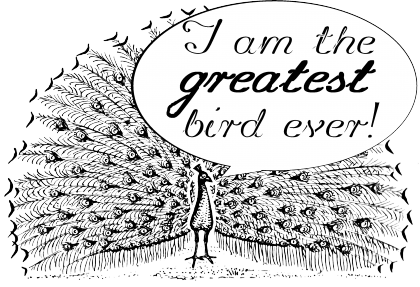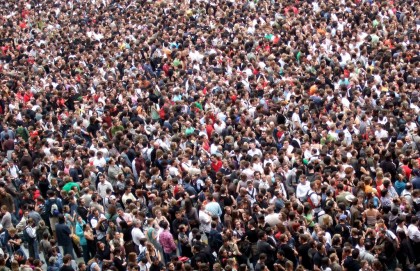Blocked? Me? Or, My Journey from Righteous Indignation to a Modicum of Self-Awareness
Devra Torres | Aug 17, 2016 | 2 cmts
I've lived a sheltered cyber-life: I was never even blocked from a Facebook group--until last Friday. It was surprisingly enlightening.
I'd joined a large, exceedingly useful and friendly diabetes support group. We were just about to get a continuous glucose monitor (CGM) for my daughter, and this group specialized in that particular experience--even our particular brand. The members were invaluable for heading off crises and glitches. Or rejoicing with you when the number on your meter matched the one on your CGM. Or commiserating with true compassion when your negotiations with the pharmaceutical-insurance-industrial complex broke down. Or sharing your consternation about that lady who swears her brother-in-law's cousin used to have type 1 diabetes but was cured by oil of oregano and cider vinegar.
I was feeling especially grateful for the existence of my virtual community. I was starting to imagine I knew these fellow travelers personally--all 11,000 of them.
And that's when I made my mistake. I shared a post I'd written for Aleteia about remembering the person behind the glucose number, even though (as I noticed only later) they'd stated clearly that both people and posts that violated their guidelines could be deleted without notice. Two of those guidelines, which I'd skimmed over, were "no hot-button topics" and "no self-promotion."

I posted the piece and was immediately blocked.
And here are a few things I learned:
- I'd been assuming without realizing it that people who get blocked must have been guilty of something obnoxious which they were too clueless to see or too stubborn to stop. That was unjust.
- Being blocked anonymously and impersonally is disconcerting in a way that being insulted to your face is not. Maybe not worse, but eerily different. You not only disappear off the face of the earth as far as the group members are concerned, but they also disappear for you. If you search, they won't be there anymore.
- On an infinitely smaller scale, it's the same kind of evil as a totalitarian regime turning someone into a non-person and rewriting history without him. Not only do you no longer exist; you never did. You're so non-existent that even the option of a plea for a second chance is cut off. The best you can do is to sign in as somebody else, taking on a secret new identity like some shady character under a witness protection program.
- It makes you prone to self-doubt. Not necessarily a bad thing! When I was blocked, at first I assumed it was because of the religious nature of the post. It wasn't very religious, and I was proud of how inoffensive and accessible I was certain it was. But it did talk about justice and mercy, and it did include a short quote from St. John Paul II. Only later did I consider that the self-promotion might be the problem. Then, and only then, did I really look at the guidelines, which were posted unmistakably at the top of their page. Lo and behold, they spelled it all out: no hot-button topics; no self-promotions; violators may be blocked without notice.
- It turns out I am one of those arrogant people who takes a cursory look at the rules of the game, blithely assumes they couldn't possibly apply to her, and then gets indignant when consequences ensue. (Although I did include a note inviting them to take the post down immediately if inappropriate, and I do think that a less touchy moderator would have taken me up on that offer. But then, moderators with thousands of members to police may not have time for subtleties.)
- My sense of communion with 11,000 strangers was, of course, an illusion. We might provide each other with useful information; we might even shed a tear for someene's child's brush with death because of a careless school nurse--but we didn't truly know each other at all.

I'm having a friend plead my case, and if that doesn't work out, there are other, similar groups. It's just a first-world problem. But it's also a bracing reminder that personal interaction in cyberspace isn't always what it seems.


Comments (2)
Katie van Schaijik
Aug 19, 2016 8:37am
Oh, ugh. What an unpleasant experience!
That category of "self-promotion" is an interesting one, isn't it? It's taken (I suppose it can't be otherwise, under the cyber circumstances) to be entirely objective. You wrote the article, therefore your linking it is self-promotion.
No distinction is made between those who promote something for the sake of the help it might give others and those who promote something to benefit themselves.
A person wants to be recognized and responded to not only on the objective level (what she did), but on the subjective too (what she meant in doing it, what motivated her, etc.)
I love your point 1. I love that you recognize that we often do injustice to others in our assumptions about them, even our unconscious assumptions in smallish matters.
Kate Whittaker Cousino
Aug 21, 2016 6:10pm
I was an admin on a FB Catholic Moms group of a mere 4000 or so members, and it is hard to treat every case as an individual person, with the consideration that requires, when there's so much traffic and posts to keep an eye on. :-/ And making distinctions of any subtlety at all is difficult because there are sure to be several hundred members who get upset that you are obviously Playing Favorites. I wound up leaving that position (and the group itself) because of the difficulty of interacting on a truly personal level in a group of so very many people.